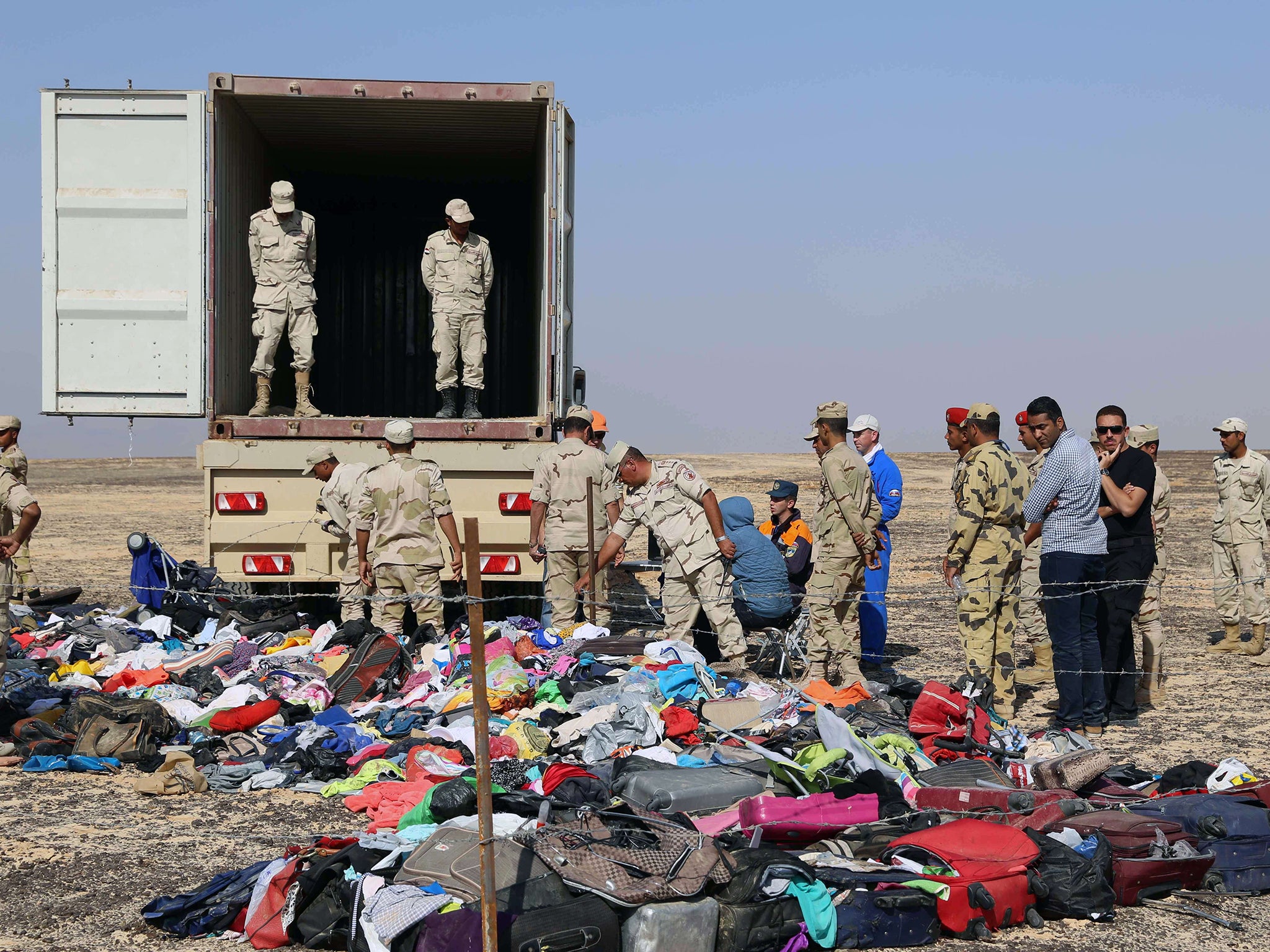Russian plane crash: President Putin agrees to suspend all Russian flights to Egypt
Evidence increasingly suggests Isis bomb was the cause of Russian plane crash that killed all 224 people on board

Vladimir Putin has agreed to suspend all flights to Egypt as evidence increasingly suggests that an Isis bomb brought down the Russian plane that crashed over the Sinai last week.
The Russian president acted after the head of the country’s security service said all flights to the north African country should be grounded until the cause of the crash that killed all 224 people on board is known.
The recommendation by Aleksandr Bortnikov, head of Russia’s Federal Security Service, signals a vindication of Britain’s controversial decision on Wednesday to suspend all flights to and from Sharm el-Sheikh airport, the Red Sea resort where Metrojet Flight 9268 took off last Saturday.
The decision to halt flights to all Egyptian airports signals a more drastic step than the British, who only suspended flights in and out of Sharm el-Sheikh and have started to fly holidaymakers home. It means 45,000 Russians will be left stranded in Egypt.
The decision by the Russian president came after a meeting with security officials on Friday and marks a significant U-turn after Putin expressed frustration at David Cameron's decision just two days ago.
FSB chief Mr Bortnikov said: "Until we know the real reasons for what happened, I consider it expedient to stop Russian flights to Egypt.
"Above all, this concerns tourist routes."
Speaking to reporters in Moscow, President Putin's press secretary Dmitry Peskov said: "The head of state agreed with these recommendations. Putin has instructed the government to look into the mechanisms of implementing these IAC recommendations and ensure the return home of Russian citizens."
President Putin criticised David Cameron's decision to suspend flights to Sharm el-Sheik on Wednesday evening, saying he should not have acted until evidence supported his theory that it was "more likely than not" that a bomb brought down the Russian aircraft.
He also accused the UK Prime Minister of a "shocking" failure to share intelligence, triggering a deepening diplomatic clash between Russia and the UK.
Mr Cameron defended his decision to ground all UK-bound flights to and from the Red Sea resort, saying his first priority was to protect British citizens. He was backed up by the United States, with President Obama saying that intelligence suggests it was "certainly possible" that a bomb was planted on Metrojet Flight 9268.
Russian and Egyptian investigations into the cause of the crash are yet to reach a conclusion, but had initially pointed toward technical failure.
If, as both UK and US intelligence now strongly suspect, an Isis bomb did cause the A321 Airbus to crash, killing 224 people, it would be extremely damaging for President Putin, who recently committed Russian forces to combat operations against Isis in Syria, and could have devastating repercussions for the Egyptian tourist industry.
It would also mark a dramatic shift in the jihadist group’s strategy. An Isis affiliate in Egypt has claimed responsibility for the attack, but the claims had until now been dismissed.
Mr Bortnikov told the security briefing that all fragments from the plane crash had been handed to Russian investigators.
Vladimir Puchkov, head of the Russian Emergencies Service, said: “Swabs and scrapings from all fragments of the [crashed] plane, baggage and soil have been taken by Russian experts.
“I underline once more that the necessary samples have been taken from all the elements that can contain traces of explosives,” he added. “If there were explosives on the plane, we will be able to determine it.”
Join our commenting forum
Join thought-provoking conversations, follow other Independent readers and see their replies
Comments
Bookmark popover
Removed from bookmarks